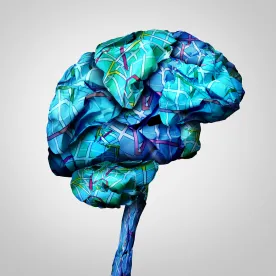If you’ve suffered a mild traumatic brain injury (mild TBI) as the result of an accident, you may be required to provide evidence of this injury in order to collect the insurance payments needed for medical care or pursue the compensation you’re entitled to through personal injury lawsuits.
A pair of recent rulings have upheld the use of Diffusion Tensor Imaging (DTI) as evidence for brain injuries including mild TBIs. These rulings help to set a precedent for the use of DTI in cases involving mild TBI and may make it easier to pursue compensation for accident-related brain injuries in the future.
DTI and the Frye standard
The Frye standard is a legal standard used to determine whether or not scientific evidence is admissible in court. Under the Frye standard, evidence is only deemed admissible if the method used to obtain it is generally accepted by experts in the relevant field. Although many states no longer use the Frye standard, there are still a number of states that follow it.
In both of the following cases, DTI was found to be admissible according to the Frye standard, setting a stronger precedent for its use in Frye standard states moving forward.
New York court upholds use of DTI: Blake v. New York Central Mutual Fire Ins. Co.
In 2018, a plaintiff who was injured in a motor vehicle accident underwent an MRI with diffusion tensor imaging. This MRI was interpreted by Michael Lipton, M.D., who concluded that the plaintiff had suffered a mild TBI.
The plaintiff’s counsel moved to preclude the defendant from disputing the use of DTI on the grounds of its general acceptance. However, the defendant then cross-moved to preclude Dr. Lipton’s testimony, arguing that DTI lacked general acceptance as a practice.
The plaintiff then submitted significant evidence in support of DTI’s general acceptance, including several peer-reviewed articles, previous court decisions, and affirmations from board-certified physicians who regularly used DTI as part of their practice. They also noted DTI’s FDA approval and its common usage in hospitals throughout the country.
The defendant responded by arguing that DTI is not generally accepted and submitted evidence including articles disputing its reliability.
The New York court decided that the plaintiff had presented sufficient evidence and that the DTI results were admissible under the Frye standard. As a result, the defendant couldn’t dispute that DTI itself was a generally accepted practice, although they were still free to dispute its use in this particular case.
Illinois court upholds use of DTI: Snyder v. Vital
In a more recent case from November of this year, a defendant in Illinois moved to bar testimony from the plaintiff’s neuroradiologist, Dr. Ammar Chaudhry. Specifically, the defendant argued that Dr. Chaudhry’s interpretation of advanced MRI sequences including DTI should not be admissible in court.
However, the court denied the defendant’s motion after finding that DTI was admissible under the Frye standard in addition to Illinois state law. As such, the testimony regarding the DTI findings was deemed admissible.
New Jersey traumatic brain injury lawyers
Both of these recent rulings uphold the use of DTI in court and will hopefully make it easier for individuals with traumatic brain injuries to pursue the compensation they’re entitled to. However, it’s still important to work with an experienced attorney if you’ve been injured and need to seek compensation.



 />i
/>i